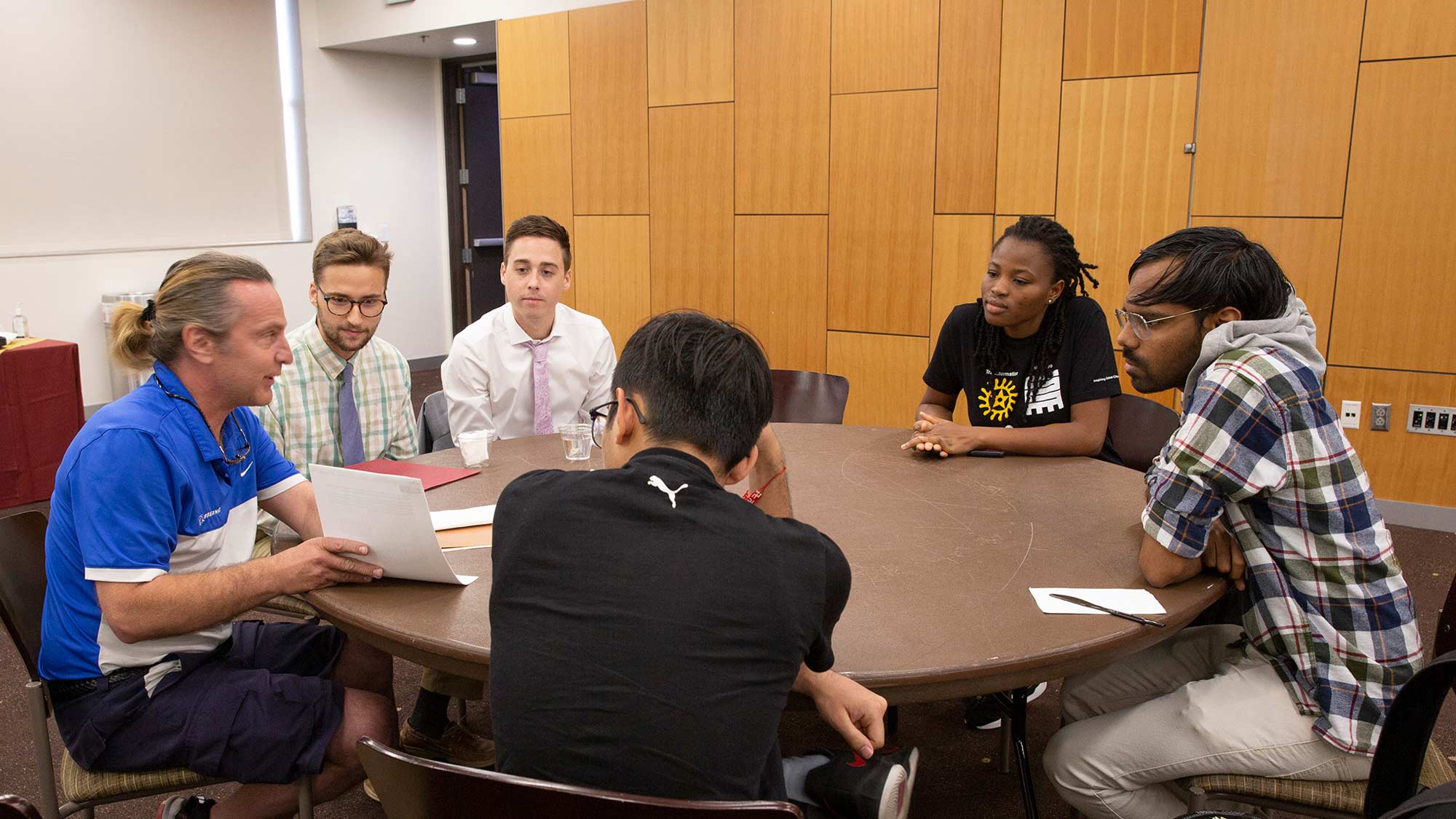
ASU student groups offer electrical engineering opportunities

Electrical engineering students in the Ira A. Fulton Schools of Engineering at Arizona State University can connect with others in their major and gain industry insights through two student organizations: the ASU chapter of the Institute of Electrical and Electronics Engineers, commonly known as IEEE, and the ASU chapter of Eta Kappa Nu, also known as HKN — IEEE’s honor society for high-achieving electrical engineers and engineering students.
Cynthia Liu, an electrical engineering graduate student and the vice chair of ASU’s IEEE chapter, says that the organization’s main goal is to connect students with industry. ASU IEEE provides networking events, enabling students to meet and hear from professionals working for companies such as Boeing, Honeywell, Intel and Texas Instruments.
“Engineering students who want to polish up their resume, connect with companies and grow their professional development skills should definitely get involved,” Liu says.
One of the unique networking events that ASU IEEE plans is called Dinner With Engineers, held for the first time in April 2022 in collaboration with the Sun Devil Satellite Laboratory. Students took a speed-dating-style approach to meet engineers from different companies in the space and electrical engineering fields. They rotated between tables over dinner to gain insights on career paths and opportunities. The next Dinner With Engineers will take place in January 2023.
The organization’s most prominent annual event is IEEE Day, which celebrates the founding of IEEE in 1884 and is held annually on the first Tuesday of October. Celebrations include a keynote speech from an industry member about new technologies and activities for participants, such as trivia contests about the keynote and IEEE.
ASU IEEE general student body membership is free with no special requirements to join. The chapter is a part of the worldwide IEEE organization, which students can join by paying a membership fee. The base student membership starts at $32, with higher levels available as well.
The free student body membership provides mostly on-campus and virtual career opportunity events, while the paid IEEE membership gives members access to more events, networking, technical information and industry journals. Worldwide, IEEE has more than 400,000 members dedicated to fields in technological engineering and publishes close to 200 scientific publications every year.
“IEEE is recognized throughout the engineering world. Being involved can help students connect with industry members and find resources to further their education or technical interests,” Liu says. “Being involved as a student board member also looks good on resumes!”
ASU Eta Kappa Nu: IEEE’s honor society
ASU Eta Kappa Nu’s members represent the high achievers of ASU IEEE. The organization’s ideals include scholarship, character and attitude. Like the ASU IEEE chapter, HKN’s ASU chapter is part of the broader, worldwide HKN organization.
Member benefits include networking opportunities with engineering professionals, events to connect with faculty and fellow students and hands-on engineering experiences.
Recently, members joined an informational session about the Fulton Undergraduate Research Initiative, a program that gives students the opportunity to conduct research as undergraduates. Another ASU HKN event, Lunch with Professors, provides a look into research opportunities on campus, as well as the upcoming Amazon Web Services DeepRacer machine learning competition with other Fulton Schools organizations in Spring 2023.
“Being invited to join ASU HKN is a huge honor and another way to stand out from the crowd,” says Leslie Miller, an electrical engineering major and ASU HKN’s chapter president. “It is an ‘official stamp’ of one’s academic accomplishments.”
Members also get the chance to participate in community service activities. Remote students are encouraged to get involved in local volunteering beyond only engineering-related endeavors, while on-campus students volunteer at Feed My Starving Children every semester.
ASU HKN goes beyond traditional networking events by sending out members’ resumes to industry partners. Miller emphasizes that the connections made in ASU HKN allow students the opportunity to gain significant hands-on engineering experience in multiple disciplines before they enter the job market.
For the 2020–21 school year, ASU HKN won Key Chapter recognition for their commitment to best practices that enrich member experiences.
Miller says that membership in ASU HKN also helps students build supportive peer relationships with one another.
“Having peers to help us with academic, professional or personal matters is extremely beneficial in our academic experiences,” she says. “We have a great in person and online community. Everyone can find their niche within our organization.”



































